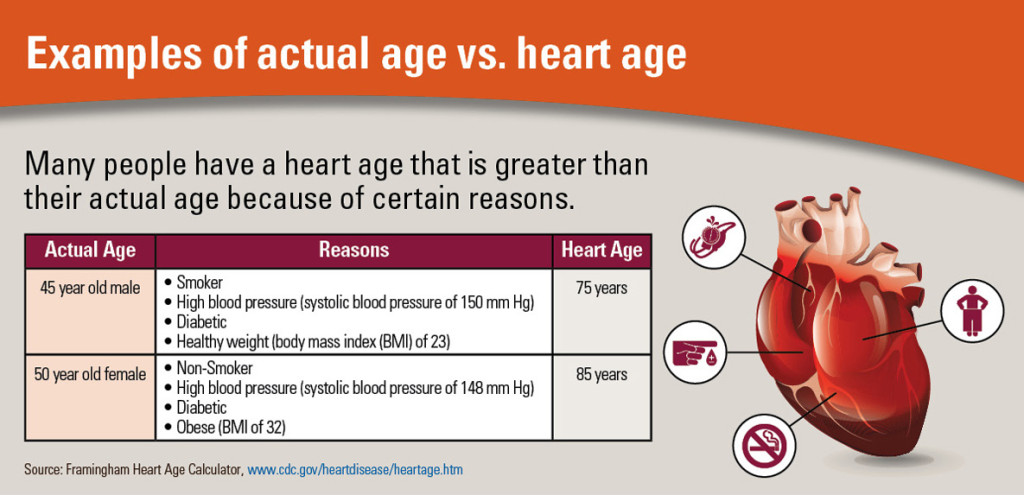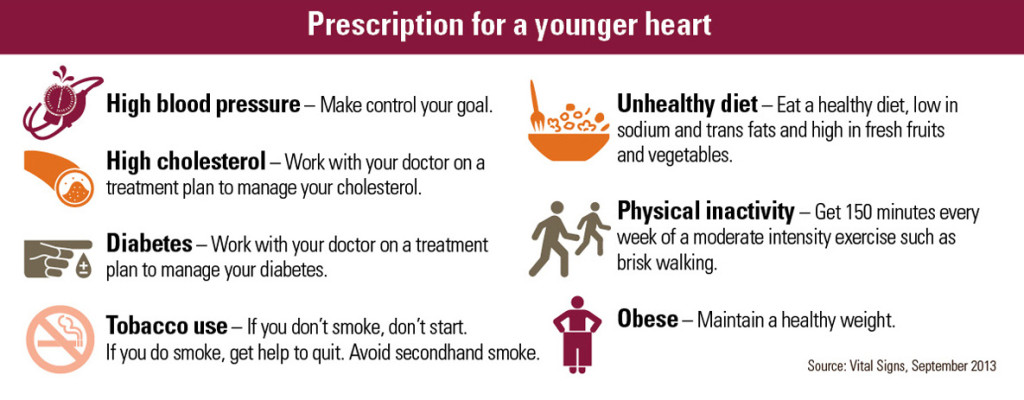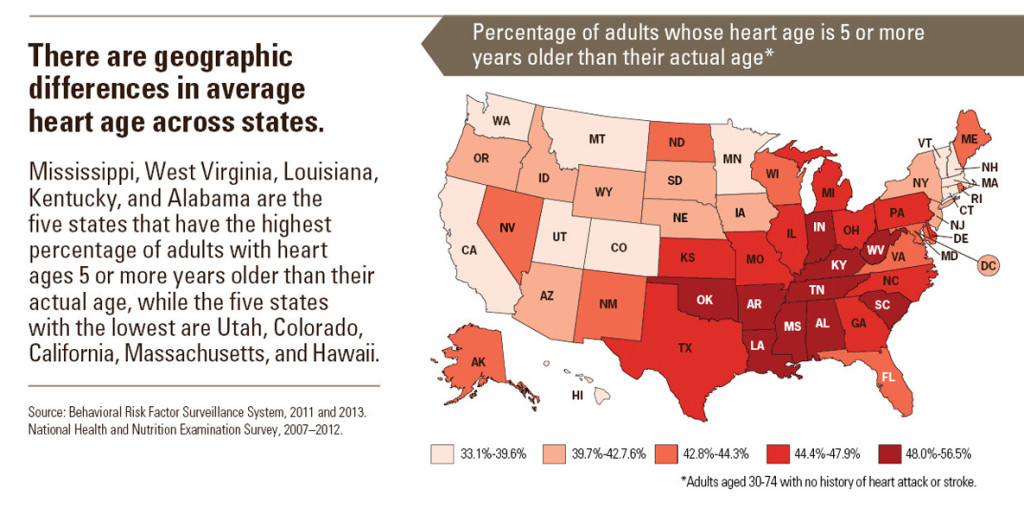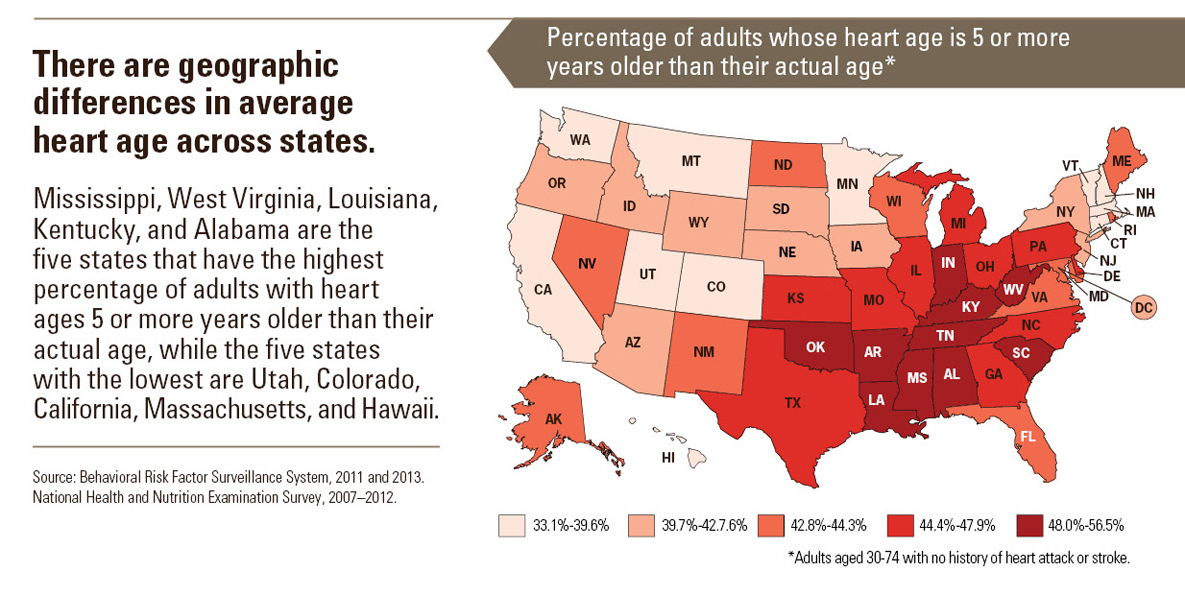Transparency is extremely important to us, so we are letting you know that we may receive a commission on some of links you click on from this page. See our disclaimer.
Is your heart older than you are?
That's a question being posed by the U.S. Centers for Disease Control and Prevention. The CDC states:
“Most American adults have a heart that is older than their actual age. One way to understand your risk for a heart attack or stroke is to learn your “heart age.” Heart age is the age of your heart and blood vessels as a result of your risk factors for heart attack and stroke. There are some things that put you at risk for a heart attack or stroke that you cannot change such as getting older or your family history; yet there are many others that you can change. If you smoke or have high blood pressure, your heart age will be much higher than your actual age. The most common reasons for a higher heart age that can be changed or managed are: high blood pressure, high cholesterol, smoking, obesity, unhealthy diet, physical inactivity, and diabetes. At any age, you can make your heart younger by making changes that reduce your risk. Even if you haven't had a heart attack or stroke, most US adults have a heart age older than their actual age placing them at greater risk of having one.”
The CDC offers the following tips:
- Learn your heart age and how to improve it.
- Start by choosing a risk factor or two that you're ready to change, like smoking or high blood pressure, and focus on improving them first.
- Work with your doctor to make heart healthy choices for a lower heart age.
- Take action at any age to lower your heart age and keep it low over time.
Here are useful infographics the CDC also provides:








0 Comments